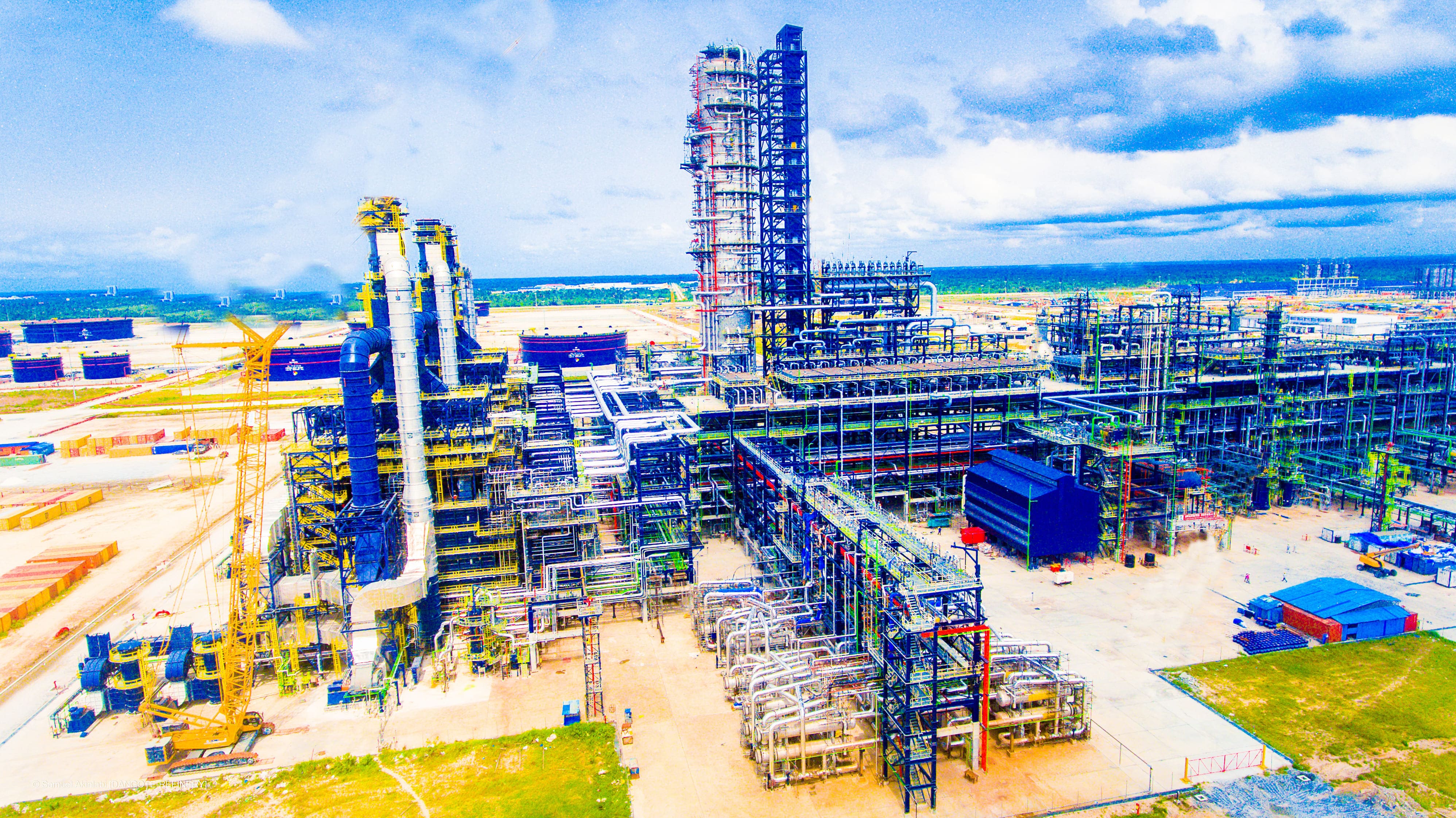Buhari Commissions Dangote Petroleum Refinery, World’s Largest Single Train
Nigeria and indeed, the African richest man, Aliko Dangote will make history today when President Muhammadu Buhari leads other five leaders on the continent to commission the Dangote Petroleum Refinery and Petrochemicals.
The facility situated at Ibeju-Lekki, Lagos is the world’s largest single-train refinery that is expected to positively transform Nigeria’s oil and gas sectoral landscape.
President Buhari will be accompanied by his counterparts from Ghana, Togo, Senegal, Niger, and Chad.
The petroleum refinery with the capacity to process 650,000 barrels per day (bpd) is sitting on 2,635 hectares of land located in the Dangote Industries Free Zone, and will employ over 100,000 persons.
The coming onstream of the gigantic project is expected to mark Nigeria’s exit from the league of oil-rich nations but which are heavy importers of petroleum products.
Expected at the historic event apart from international dignitaries are the Presidents of Togo, Gnassingbé Eyadéma; Ghana’s Nana Akufo-Addo; President of Senegal, Macky Sall; President of Niger Republic, Mohamed Bazoum, President of Chad, Mahamat Déby and a host of ambassadors.
President Paul Kagame of Rwanda, who will not be physically present will however present his goodwill message virtually.
All the 36 state governors and most of the governors-elect, ministers, senators, and captains of industries in Nigeria and others from outside the country, global oil traders, top international bankers, and international multilateral agencies are to grace the ceremony.
Nigeria’s President-Elect, Bola Ahmed Tinubu whose administration as the governor of Lagos in 2002 floated the Free Trade Zone in Ibeju-Lekki where the Refinery is located, is expected to be at the event.
The commissioning of Dangote Petroleum Refinery is significant given that it is the first time that a refinery of such magnitude built by an individual is being commissioned.
Dangote’s petroleum refinery is expected to meet the needs of Nigerian consumers and those in neighbouring countries while allowing for exports beyond the African continent. The refinery will drive the promotion of the African Continental Free Trade Area (AfCFTA) as over 50 countries in the trade bloc depend on imported refined petroleum products.
According to the Facts Sheet on Dangote Petroleum Refinery, the new Refinery can meet 100 per cent of the Nigerian requirement of all refined products (Gasoline, 53 million litres per day; Diesel, 34 million litres per day; Kerosene, 10 million litres per day, and Aviation Jet, 2 million litres per day) and also have a surplus of each of these products for export.
“The refinery is designed for 100 per cent Nigerian Crude with the flexibility to process other crudes. It has a self-sufficient marine facility with the ability for freight optimisation, and the largest single order of 5 SPMs anywhere in the world. Diesel and Gasoline Products from the refinery will conform to Euro V specifications.
“The refinery design complies with World Bank, US EPA, European emission norms, and Department of Petroleum Resources (DPR) emission/effluent norms. State-of-the-art technology. Designed to process a large variety of crudes including many of the African Crudes, some of the Middle Eastern Crudes and the US Light Tight Oil,” the Facts sheet added.
It also stated: “65 Million Cubic Metres of sand dredged costing approximately Euros 300 million, using the world’s largest, the second largest and the tenth largest dredgers to elevate the height by 1.5 metres, to insure against any potential impact of the increase in mean sea level due to global warming. Bought over 1,209 units of various equipment to enhance the local capacity for site works.
“332 cranes to build up equipment installation capacity. Built the world’s largest granite quarry to supply coarse aggregate, stone column material, stone base, stone dust & material for the breakwater. (10 million tonnes per year production capacity).
“Developed a port and constructed two quays with a load-bearing capacity of 25 tonnes/ sq metres to bring Over Dimensional Cargoes close to the site directly. The company also constructed two more quays in the port with a capacity to handle up to Panamax vessels to export fertilizer and petrochemicals and two quays to handle liquid cargoes. The port will thus have 6 quays, including a Roll-on/Roll-off quay”, the sheet added.



Comments are closed.